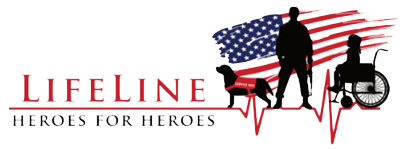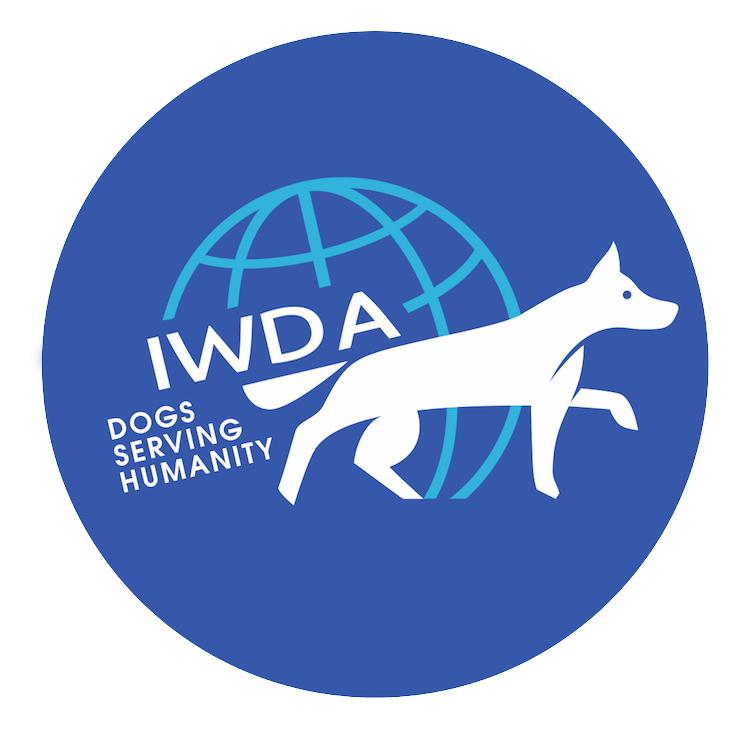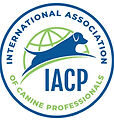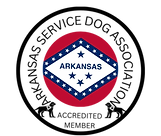This page includes questions that are commonly asked and their answers.
General Questions
When do you start training puppies?
At LifeLine Service Dogs, we adhere to proven scientific methods for imprinting and development, starting our puppies in the program as early as 24 hours old with scent imprinting and reward systems.
This early intervention is crucial for shaping well-rounded, capable service dogs.
Importance of Early Weeks of Development:
1. Physical Development: The early weeks of a puppy's life are a critical period for physical development. During this time, their sensory and motor skills rapidly evolve. By introducing controlled stimuli and positive reinforcement from an early age, we promote healthy physical growth and coordination, setting the foundation for the demanding physical tasks they will perform as service dogs.
2. Psychological Development: Early psychological development is equally important. Exposure to a variety of controlled environments, sounds, and experiences helps puppies develop resilience and adaptability. This reduces the likelihood of fear-based reactions and promotes a calm, confident demeanor, essential traits for service dogs who must remain focused and composed in various situations.
3. Age-Appropriate Development: Our experienced and knowledgeable trainers are dedicated to guiding puppies through these crucial formative weeks. They implement age-appropriate training techniques based on scientific research, ensuring that each stage of development is supported optimally. For example: - Neonatal Period (0-2 weeks):Gentle handling and exposure to different scents start the process of sensory development and imprinting. - **Transitional Period (2-4 weeks):** Introduction to mild environmental stimuli and social interaction begins, fostering initial social skills and sensory exploration. - **Socialization Period (3-12 weeks):** Extensive socialization with humans and other dogs, exposure to diverse environments, and basic training commands are introduced, shaping well-rounded, adaptable puppies. **
4. Experienced Trainers:** Our trainers possess extensive knowledge and expertise in early canine development. They are skilled in recognizing and nurturing each puppy's potential, ensuring that developmental milestones are met with appropriate support and guidance. This professional oversight is critical in shaping the puppies into successful service dog candidates.
By following these scientifically proven methods for imprinting and development, we ensure that our puppies receive the best possible start in life. This early, comprehensive training approach lays the groundwork for producing exceptional service dogs capable of performing their roles with reliability and excellence.
Why it is important is it to have your own breeding program?
At LifeLine Service Dogs, having our own in-house breeding program is essential to maintaining the highest standards for our service dogs. This program allows us to meticulously manage the genetic and environmental factors that contribute to the success of our dogs.
Importance of a Controlled Breeding Program:
1. Service Dog Background and Genetics: By maintaining an in-house breeding program, we ensure that our dogs come from a lineage with proven temperaments, health, and abilities suited for service work. This controlled environment allows us to selectively breed dogs that possess the necessary traits for service dog work, reducing the likelihood of genetic disorders and increasing the chances of producing dogs that can sustain long service careers. Our service dog bloodline is 18 generations of health tested “pawrents” who have their OFA and Embark genetic testing completed.
2. Scientific Approach: Our breeding program employs both quantitative and qualitative data to make informed breeding decisions. This scientific approach involves extensive health screenings, temperament assessments, and the evaluation of heritable traits critical for service dog success. By analyzing this data, we can predict and enhance desirable characteristics in our dogs, such as temperament stability, physical health, and the ability to perform complex tasks.
3. High Success Rates: Studies and industry data indicate that approximately 88% of rescues/ pet canines fail to sustain service dog careers due to issues like temperament instability, health problems, or burnout. Our in-house breeding program significantly mitigates these risks by producing dogs specifically bred and trained for the rigors of service work with a 96% graduation rate! This focus ensures that our dogs have a much higher success rate in their roles.
Psychiatric Service Dogs - The Elite of Working Dogs:
1. Specialized Abilities: Psychiatric service dogs represent the pinnacle of the working dog industry due to their extraordinary ability to chain scent and behavioral changes in their handlers. These dogs are trained to detect the onset of anxiety, post-traumatic stress, and other psychiatric conditions by sensing biochemical changes in the body.
2. Early Detection: Well-trained medical alert and response service dogs can alert their handlers to changes in blood glucose levels and the onset of seizure activity, often up to 20 minutes before these events occur. This early detection is crucial in managing health conditions effectively and preventing emergencies. The dogs' ability to detect increased levels of anxiety or stress before they escalate allows handlers to take proactive steps to manage their post traumatic stress.
In summary, our in-house breeding program is vital to producing the highest quality service dogs, equipped with the necessary genetic background and training to excel in their roles. By prioritizing health, temperament, and consistent heritable traits , we ensure our dogs are not only reliable service dogs as essential partners in managing the complex needs of their handlers.
How thorough is your dog training?
At LifeLine Service Dogs, our training program is extremely thorough, encompassing both extensive task training and public access training. Each service dog undergoes 1800 hours of rigorous training to ensure they meet the highest standards.
Task Training:
- Specialized Skills: Each dog is trained in specific tasks tailored to assist individuals with disabilities. This includes tasks like retrieving items, alerting to medical conditions, providing stability, and more.
- Adaptability: Dogs are trained to adapt to various environments and situations, ensuring they can perform their tasks reliably under different conditions.
Public Access Training:
- Behavioral Training: Dogs are trained to remain calm and focused in public settings, ignoring distractions and maintaining excellent behavior.
- Obedience: Training covers basic and advanced obedience commands to ensure the dogs respond promptly and accurately to their handlers.
- Exposure: Dogs are exposed to a wide range of public environments, including stores, restaurants, public transportation, and more, to ensure they are comfortable and well-behaved in any setting. Each dog must pass a series of stringent tests to become vested and affiliated with LifeLine Service Dogs . These tests evaluate their ability to perform their tasks reliably and behave appropriately in public. This comprehensive training ensures that LifeLine Service Dogs are well-prepared to provide exceptional support to their handlers.
The 1800 hours is more for the service bred dogs from puppy hood.Actually, I'd put more like 1500 hours from puppy hood although for more extensively trained guide dogs that 1800-2000 is pretty normal.
Where do you train?
At LifeLine Service Dogs, we provide a comprehensive training program that encompasses a variety of environments to ensure our service dogs are well-prepared for their future roles.
Training Environments:
1. Domestic Households: Training begins in a controlled, home-like setting where puppies and young dogs are introduced to the everyday environments they will encounter as service dogs. This includes: - Household Routines:Training in typical household activities, such as navigating furniture, responding to doorbells, and remaining calm during meal times. - Specific Tasks:Practicing tasks that will be crucial for their handlers, such as retrieving items, opening doors, and providing physical support.
2. Public Spaces: To ensure that our service dogs can perform reliably in any situation, extensive training is conducted in various public settings, including: - Stores and Shopping Centers:Dogs learn to remain focused and well-behaved amid the bustling activity of retail environments. - Public Transportation:Exposure to buses, trains, and other forms of public transport helps dogs become accustomed to these spaces, ensuring they remain calm and obedient. - Parks and Recreational Areas:Training in open, public areas helps dogs learn to ignore distractions and stay attentive to their handlers. Importance of Solid Focus and Stability: 1. Reliable Performance: Training in diverse environments ensures that our service dogs develop the ability to maintain solid focus and stability, regardless of external distractions. This is crucial for their reliability and effectiveness as service dogs. 2. Safety and Confidence: A service dog must be able to perform tasks consistently and confidently to ensure the safety and well-being of their handler. Training in various settings helps build the dog's confidence and ability to handle unexpected situations calmly.
3. Comprehensive Preparation: By training in both domestic and public environments, we ensure that our dogs are comprehensively prepared to support their handlers in all aspects of daily life. This holistic approach to training results in well-rounded, adaptable service dogs capable of excelling in their roles.
At LifeLine Service Dogs, our commitment to diverse and thorough training environments guarantees that our dogs are equipped with the skills and stability necessary to provide exceptional service and companionship to their handlers.
What if I have my own dog? Can they be a service dog ?
This is a great question and the answer is: possibly!
We are happy to evaluate K9’s already owned by you. Our evaluation is pretty complex. Each K9 must demonstrate ability in several key areas of testing. Why?
1. The statistical rate of success for a pet/rescue is approximately 15%-20% vs the statistical average of K9’s produced from consistent working bloodlines who success rate for LifeLine Service Dogs is %96.
2.Each K9 considered for service work passes a series of evaluations to determine their ability to focus under distraction.
3.A K9 must have the ability to handle high stress situations with focus and a steady temperament.
4. K9’s should possess a superior level of intelligence and posses a strong work ethic (not to be confused with “drive”) a very common error.
5. K9’s should demonstrate problem solving skills among a few other abilities and strengths we do not have room to list here.
6. Additionally privately owned K9’s must pass genetic, structural and veterinarian examination/testing to ensure we are starting with a healthy K9 canidate.
7. We do not train for dogs older than 2 years old. Why? If a K9 enters training at say 5 years old and has approx 18-24 months of training the K9. They would then be 7 years old at the time of graduation. Service K9’s are typically about 8 years old when they retire.
We are happy to honestly evaluate each K9 that may be currently owned by you for possible service dog strengths . We have successfully trained for privately owned K9’s so you never disqualify a dog without a through evaluation!
Do you train for Veterans and Kids only?
Veterans , First Responders, Gold Star, Blue Star ,Active Duty and Children do have a priority on our roster. However, we do take applications from civilian individuals and do our best to help you.
How long does it take to train a service dog?
Anywhere from 18month to 24 months to graduate and continued maintenance training for the service dogs career.
How long will it take us once you enroll in our program? Well that would depend on what level of training one of our program dogs already in training is currently at.
How do I apply?
You can apply through this link provided.
Your Support Helps Make It All Possible
LifeLine Service Dogs is a Non-Profit Organization that trains and places task trained service dogs to our Veterans, Youth and qualified individuals at no cost to them.
501(c)(3) / 88-2527292






